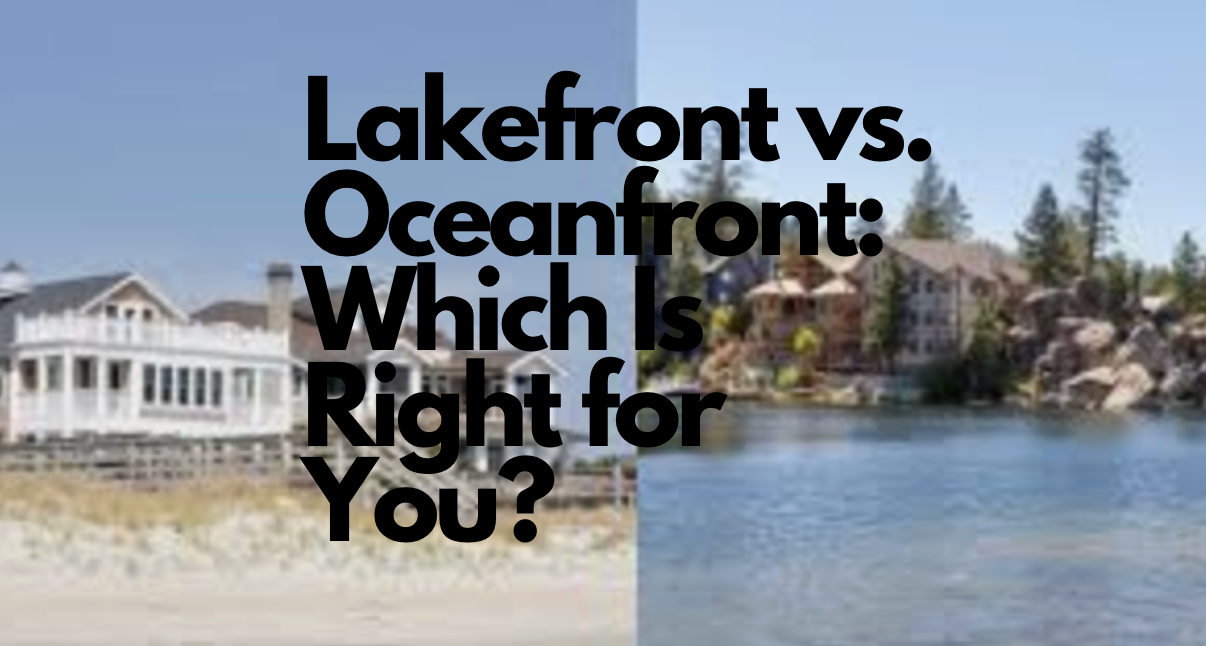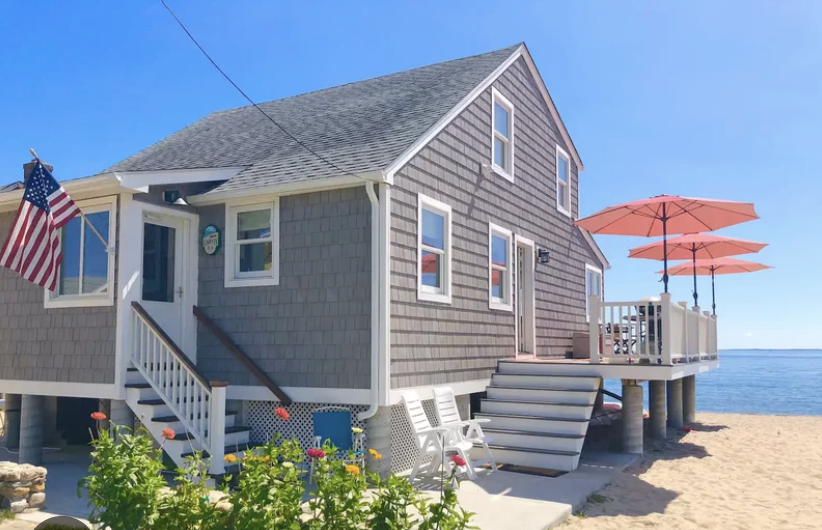
When it comes to choosing the perfect waterfront property, the decision often boils down to one critical question: lakefront vs. oceanfront? Both options offer unique advantages and breathtaking views. Both options come with their own set of considerations and lifestyle factors. Whether you’re dreaming of serene lakeside sunsets or the rhythmic sound of waves crashing against the shore, understanding the differences between lakefront vs. oceanfront properties is essential to making the right choice for your needs. In this blog post, we’ll explore the key factors to consider when deciding between lakefront and oceanfront living.
Location and Accessibility
The first factor to consider when choosing between lakefront and oceanfront properties is their location and accessibility. Lakefront properties are typically found in inland areas, surrounding natural or man-made bodies of water. These properties offer a sense of tranquility and seclusion, away from the hustle and bustle of coastal areas. On the other hand, oceanfront properties are situated along coastlines, providing direct access to ocean views and sandy beaches. The location you prefer will depend on your lifestyle preferences and priorities. If you crave privacy and a quieter atmosphere, a lakefront property may be more suitable. However, if you enjoy the energy of coastal communities and easy access to recreational activities like surfing or sailing, an oceanfront property might be the better choice.
Views and Scenery
One of the most significant draws of waterfront living is the stunning views and natural scenery. Lakefront properties offer picturesque vistas of calm waters surrounded by lush forests or mountains, providing a serene backdrop for relaxation and outdoor recreation. In contrast, oceanfront properties boast expansive panoramas of the open sea, with ever-changing tides and dramatic sunrises and sunsets. Consider what type of scenery resonates with you most and aligns with your aesthetic preferences. Do you prefer the tranquil beauty of a serene lake or the dynamic allure of the ocean’s endless horizon?

Recreational Activities
Another crucial factor to consider is the availability of recreational activities in each location. Lakefront properties offer a wide range of water-based activities such as swimming, fishing, kayaking, and boating in calm, freshwater environments. Additionally, many lakeside communities provide amenities like hiking trails, golf courses, and winter sports opportunities for year-round enjoyment. On the other hand, oceanfront properties provide access to a diverse array of aquatic pursuits, including surfing, snorkeling, paddleboarding, and deep-sea fishing. Coastal regions also offer proximity to beachside attractions such as boardwalks, amusement parks, and waterfront dining options. Think about your preferred leisure activities and which environment best facilitates your hobbies and interests.
Climate and Weather
The climate and weather patterns of each location play a significant role in determining the suitability of lakefront versus oceanfront living. Lakefront properties tend to experience more moderate and predictable climates compared to coastal areas, with less extreme temperature fluctuations and milder winters. However, lakeside regions may also be prone to occasional humidity, fog, and mosquitos, depending on the geographic location. In contrast, oceanfront properties are influenced by maritime climates characterized by cooler summers, warmer winters, and higher levels of humidity. Coastal areas are also susceptible to inclement weather events such as hurricanes, nor’easters, and coastal erosion, which can impact property maintenance and insurance costs. Consider your tolerance for different weather conditions and how they may affect your overall comfort and enjoyment of the property.

Property Values and Costs
When it comes to real estate investments, property values and costs are essential considerations for. Lakefront properties often come with lower price tags compared to oceanfront properties, making them more accessible to a wider range of buyers. Additionally, maintenance and insurance costs for lakefront homes may be lower due to the absence of saltwater corrosion and coastal erosion risks. However, prime lakefront locations with desirable amenities and proximity to urban centers may command higher prices. Oceanfront properties, on the other hand, are typically more expensive due to their premium coastal locations and high demand for waterfront real estate. Additionally, ongoing maintenance and insurance expenses for oceanfront homes can be significant. Evaluate your budget and financial priorities to determine which type of waterfront property aligns with your financial goals and investment strategy.
Conclusion:
Choosing between lakefront vs. oceanfront living is a deeply personal decision that involves weighing various factors such as location, scenery, recreational opportunities, climate, and costs. Whether you’re drawn to the tranquility of a serene lake or the dynamic energy of the open sea, understanding the distinct advantages and considerations of each option is crucial to finding the perfect waterfront property for your needs. By carefully evaluating your lifestyle preferences, budget, and long-term goals, you can make an informed decision that brings you closer to realizing your waterfront living dreams. So, whether you’re envisioning lazy days by the lake or endless adventures by the ocean, take the time to explore your options and find the waterfront oasis that feels like home.
Posted by Scott Freerksen “The Lake Guy”
